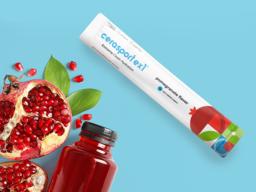Ceralyte’s potassium-free electrolytes were exactly what I needed—gentle, effective, and easy on the stomach. The lemon citrus flavor was especially refreshing and not overly sweet, which made it easy to sip throughout the day. I really appreciated having a rehydration option that’s both well-balanced and pleasant to drink. Highly recommend for anyone needing a potassium-free solution!
I helped out my Mom, by placing this order - she has been drinking Ceralyte for many years, due to short bowel syndrome. This keeps her out of the hospital/ER from getting dehydrated, which can/does happen very easily for her
My mum had very low sodium, she is post kidney transplant. We were looking at something like this without potassium and I am so happy we found a solution. This product really helps a lot. Thank you 🙏
Would have given five stars , but hard to dissolve !



